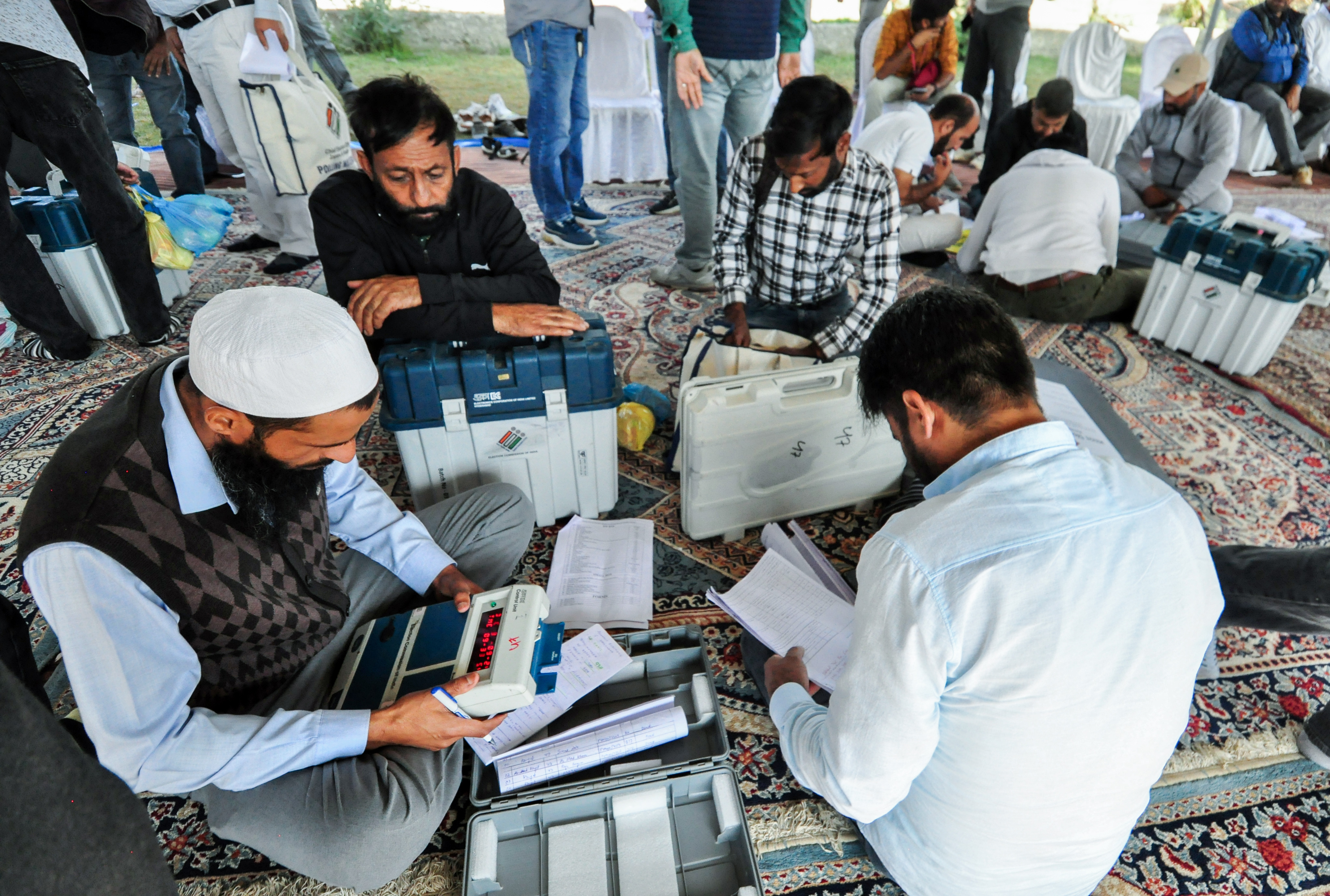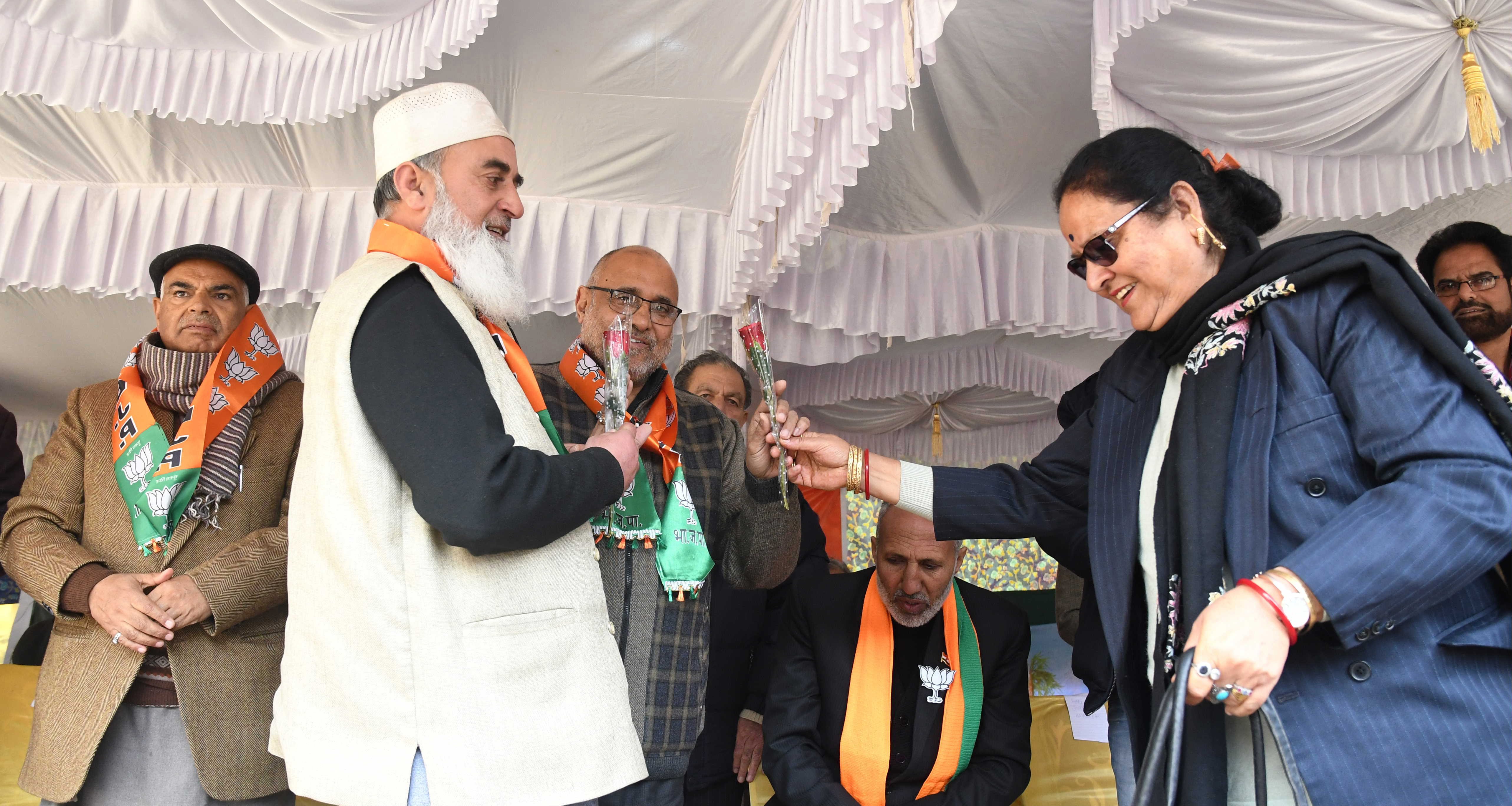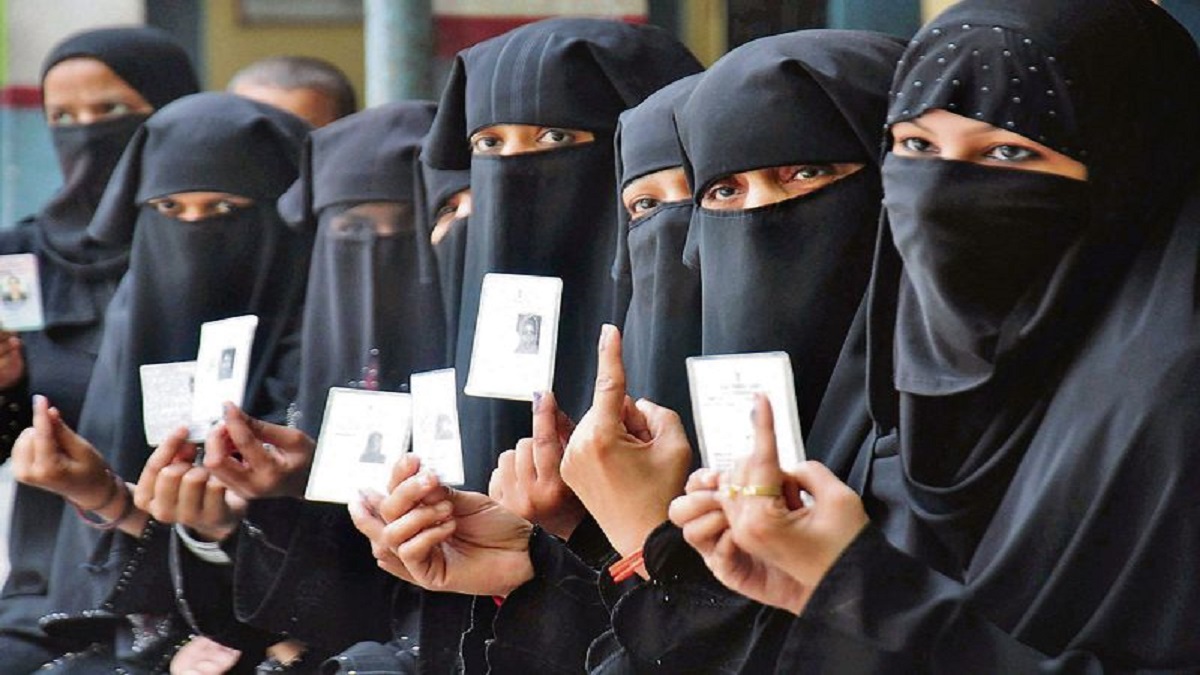.webp)
 Saquib Salim
Saquib Salim
With the announcement of assembly elections in Bihar, the social media has been flooded by posts urging Muslims to vote only for a ‘Muslim Party’. Several Muslim ‘analysts’ and ‘journalists’ with their social media followings running in millions among the Indian Muslims are arguing that no matter how much representation is provided to Muslims by parties like RJD, Congress, etc. MLAs elected from these parties won’t take up the Muslim issues and will only tow the party line. Therefore, it is needed that Muslims vote for a Muslim party, with a clear Muslim identity, en bloc.
In present circumstances, especially in Bihar, this argument for a Muslim party implicitly translates into support for Asaduddin Owaisi-led AIMIM, which had won 5 Legislative seats in the last elections in Bihar, of which 4 later defected to other parties. The argument didn't need scrutiny if it was said by only a few politicians. It, however, needs to be challenged when some well-intentioned and influential Muslims ask Muslims to vote only for a Muslim party.
What’s the problem if Muslims vote only for a party that professes its policies only for Muslims?
 Employees getting ready for officiating the polling in Kashmir
Employees getting ready for officiating the polling in Kashmir
The problem starts with the theorisation that Muslims are a homogeneous community. The idea overlooks the very fact that Muslims, like any other religious faith, are not a single monolithic community. Muslims are further divided into sects, castes, classes, and cultural and linguistic groups whose interests are varied, and at times in opposition to each other. The interests of urban service class Muslims are different from those of Muslims living in villages. Muslims living in Kashmir are much different from those living in Bihar or Kerala. Shia, Sunni, Ahl-i-Hadith, and Deobandi are not the same in their beliefs and practices.
In a nutshell, the idea that is based on the assumption that Indian Muslims are a homogeneous community is a failed project from the start.
Now, let us assume Muslims are a single community and start voting en bloc for a party led by a Muslim and that raises only Muslim issues, then what will happen?
Theoretically, in an electoral democracy, a party after winning a majority of seats would not identify itself with voters and treat those who voted for it and those who didn't at par. However, in practice, this is not how democracies actually work, or can work. Political parties, after winning an election, focus more on those people who supported it and those who can be brought closer to them. Others, who are presumed to be staunchly against them, get overlooked.
This is how democracies all over the world work.
If Muslims are a vote bank of a particular Muslim Party, what will they get? In India, out of 543 Lok Sabha Constituencies, only 15 have more than 50% Muslim population. That means, if all the Muslims in these constituencies vote for a single Muslim party, the party would win these 15 seats. The other 14 Lok Sabha constituencies have a Muslim population between 40% and 50%. Presuming this Muslim party wins all these seats, it would bring its tally to 29. Another 19 Lok Sabha constituencies had a Muslim population between 30% and 40%.
 BJP wooing Muslim voters during election campaign in Kashmir
BJP wooing Muslim voters during election campaign in Kashmir
Of course, in a practical democracy, non-Muslims will not vote for this party for obvious reasons. Also, such a situation will lead to more polarisation. Therefore, by any logic, the party cannot win more than 20 to 25 Lok Sabha constituencies. In a house of 543, this number will have a negligible impact. In the case of a coalition government, this could be helpful for Muslims. Again, a party with clear religion-based ideals would have limited takers in a coalition.
Moreover, polarisation because of the 'Muslim Party' would make other parties stop caring for Muslim localities and interests. Political parties always think of the next elections while formulating policies, and in this scenario, investing in Muslims will be meaningless.
The situation in the Bihar Legislative Assembly is not very different, where around 20 constituencies are where Muslim candidates can win with Muslim votes.
The Muslim community had faced this 'otherisation' of them in the past, too, and right now, they are battling it. Till 1967, the Indian National Congress remained almost unchallenged, but with the 1967 elections, Indian political space opened up. In several states, the party's authority was challenged by Bharatiya Jana Sangh (later BJP), socialists and communists. Every party was trying to woo each block of voters, and Muslims were no different.
The Indira Gandhi-led Congress gave India its first Muslim Chief Minister of any state in 1971 in Barkatullah Khan (Rajasthan). In the next 12 years, this party elected 3 more Muslim CMs - Abdul Ghafoor in Bihar, A. R. Antulay in Maharashtra and Anwara Taimur in Assam. Meanwhile, Kerala and Manipur also saw Muslim CMs in the 1970s. Against the popular perception, Jana Sangh also had its fair share of Muslim leaders like Maulana Imdad Sabri, an influential Urdu journalist and politician. In 1962, the Jana Sangh supported Mirza Ahmad Ali in the Rajya Sabha election. Communists and socialists did their bit as well to attract Muslims towards them.
Overall, from the 1960s to 1984, Muslims were open to all parties and thus every party tried to woo them and raise their issues. Things changed in 1984 after Congress won a brute majority and the BJP raised the Ram Janma Bhoomi issue. Now, Congress did not feel like it needed to woo Muslims, and the BJP was on a path that made Muslims feel threatened. Muslims were left with the option of supporting the socialists and communists. Muslims began voting for the Janata Dal. Yet at this stage, no party was an untouchable.
 Muslim voters in UP elections flaunting their voter cards
Muslim voters in UP elections flaunting their voter cards
In the late 1990s, when Atal Bihari Vajpayee-led BJP came to power, it had leaders like Sikandar Bakht, Syed Shah Nawaz and Mukhtar Abbas Naqvi. Muslim bureaucrats and intellectuals also receive coveted positions. However, by this time, the BJP had become untouchable for Muslims. Muslims in the BJP were summarily branded as traitors of the community, and the party lost hope of winning Muslim votes. Today, the Modi government doesn't have any Muslim ministers; the BJP has no Muslim elected to the Lok Sabha. The distancing worked mutually but hurt Muslims more. They don’t have stakes in the ruling party.
The fallout of this ‘strategy’ was that the opposition parties became the only voting option for Muslims. Congress, socialists and communists need not do anything to gain Muslim votes. There is no threat that this vote bank can move towards the BJP. The whole community is now in a hostage situation. So, though the opposition parties receive a bulk of Muslim votes, they remain silent on Muslim issues.
In the last 20 years, Muslim youth have been feeling restless as they feel ignored by the political parties. Thus, these cries for a Muslim party are raised time and again. However, rather than a remedy, this will serve as a booster to the problems. Muslims will be further from the mainstream political decision.
The harm will be for the Muslims, for the society and for the nation. What is needed is that Muslims ensure that every party has their representation, no party should be untouchable, and every party should be in a position to hope for votes from them.
ALSO READ: Namaz in Pune fort raises debate on tolerance and Muslim women's rights
For this, political parties should also come forward because no nation can prosper if its 14% population starts feeling disillusioned with the political process.
